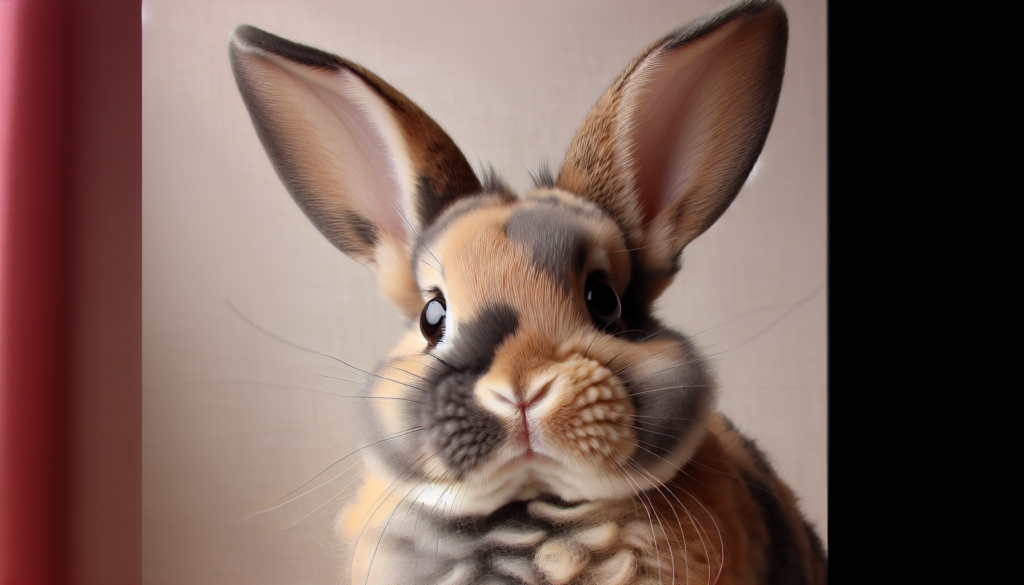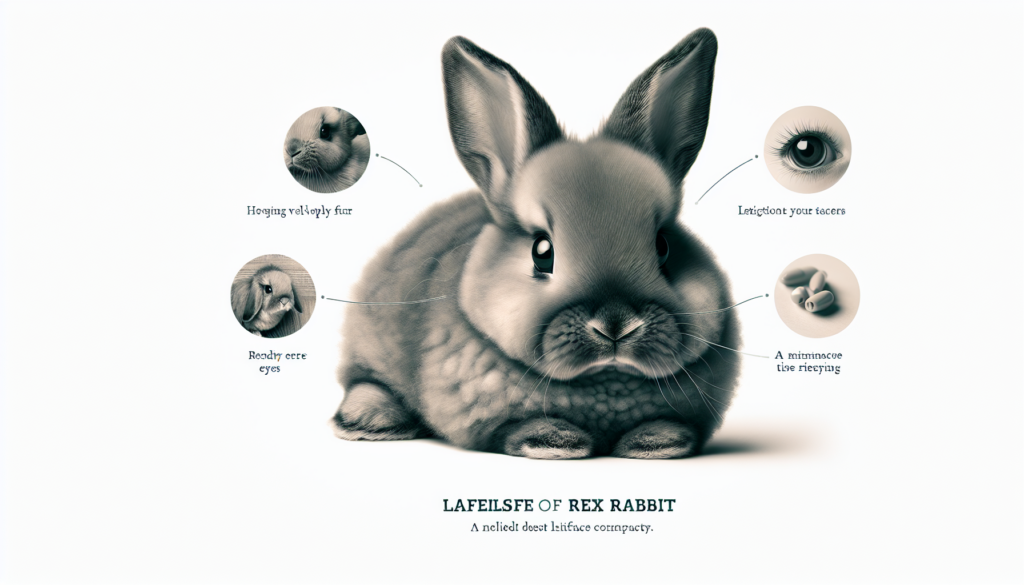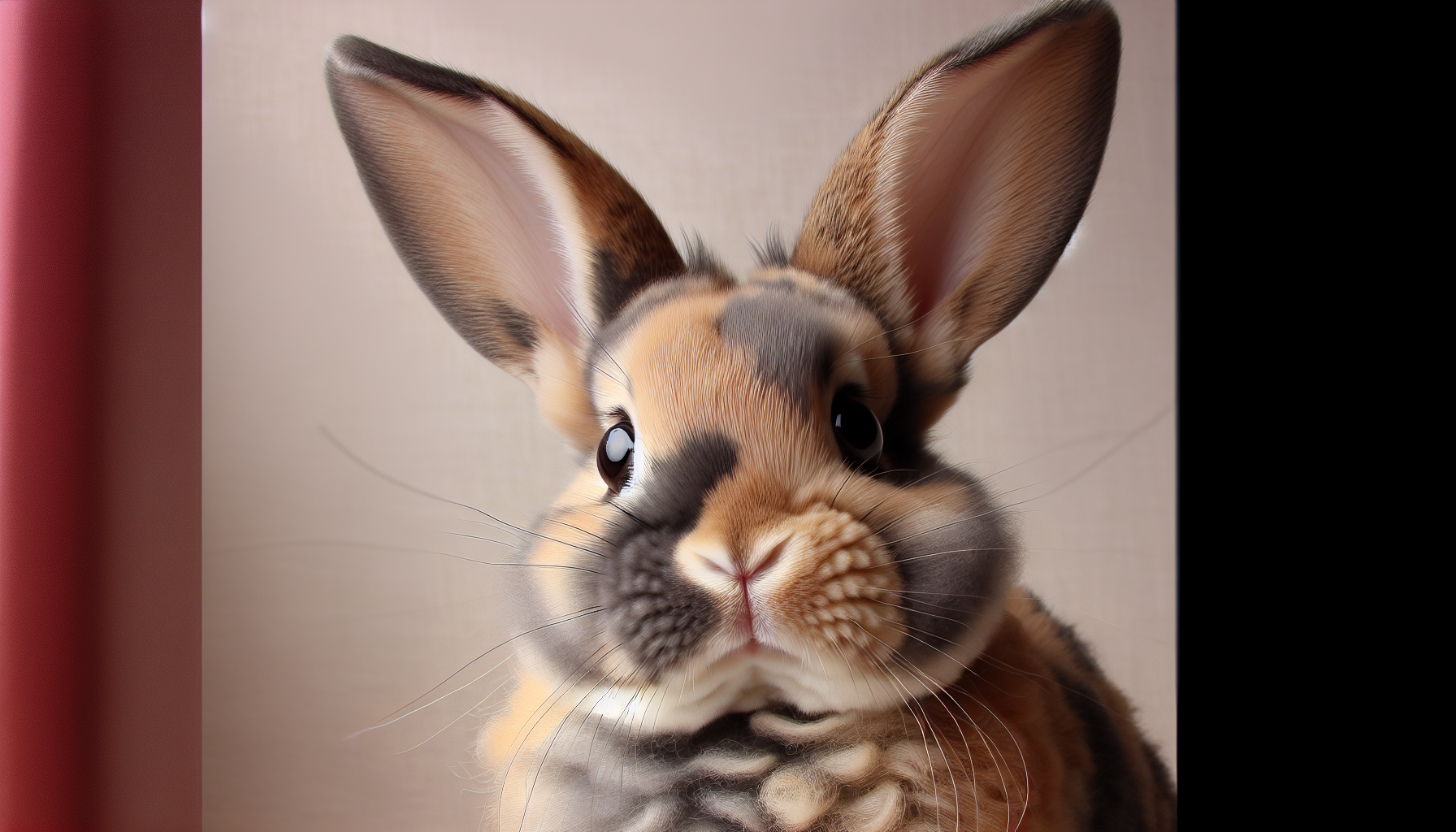Have you ever wondered about the lifespan of a Mini Rex? In this article, we will explore the fascinating world of Mini Rex rabbits and shed some light on their lifespan. These adorable creatures are known for their plush fur and compact size, making them a popular choice among rabbit enthusiasts. So, if you’re curious to learn more about how long these little furballs typically live, keep reading!

Physical Characteristics of Mini Rex Rabbits
Coat color and texture
Mini Rex rabbits are known for their soft and dense fur. Their coat can come in a wide array of beautiful colors, including castor, chinchilla, opal, and more. The texture of their fur is velvety and plush, which makes them a favorite among rabbit enthusiasts. It’s important to regularly groom their coat to keep it clean and prevent matting.
Size and weight
On average, Mini Rex rabbits weigh between 3.5 and 4.5 pounds. They have compact bodies with a well-rounded shape, giving them a cute and chubby appearance. Despite their small size, they have a strong and muscular build. Their small stature makes them suitable for both indoor and outdoor living.
Body shape
Mini Rex rabbits have a unique body shape that sets them apart from other rabbit breeds. Their body is characterized by a rounded, somewhat cylindrical shape, with a well-muscled back, broad chest, and short neck. They have medium-length ears that stand upright, adding to their adorable and alert expression. Their compact bodies make them agile and well-suited for quick movements.
Breed History of Mini Rex Rabbits
Origins and development
The Mini Rex rabbit breed was developed in the early 1980s by a talented breeder named Monna Berryhill. She aimed to create a smaller version of the Rex rabbit breed, which is known for its plush fur. By selectively breeding rabbits with shorter fur and compact size, she successfully created the Mini Rex breed. This new breed quickly gained popularity due to its unique appearance and soft coat.
Popularity and purpose
Mini Rex rabbits quickly became popular pets and show rabbits due to their charming personality and beautiful fur. They were recognized by the American Rabbit Breeders Association (ARBA) in 1988 and have since been a favorite among rabbit enthusiasts worldwide. While originally bred for their fur quality, today they are predominantly kept as family pets and show rabbits.
Factors Influencing Mini Rex Lifespan
Genetics
Genetics play a significant role in determining the lifespan of Mini Rex rabbits. Just like any other living creature, they inherit certain traits and characteristics from their parents. Breeders strive to select healthy parent rabbits with good longevity to pass on desirable genes to their offspring. While genetics are a critical factor, it’s important to note that individual care and lifestyle also greatly impact a rabbit’s lifespan.
Diet and nutrition
Providing a well-balanced diet is essential for promoting a long and healthy life for Mini Rex rabbits. They should have unlimited access to fresh hay, which aids in digestion and prevents dental issues. A high-quality rabbit pellet, supplemented with fresh vegetables and a small amount of fruit, will provide the necessary nutrients for their overall well-being. Avoid feeding them excessive treats or foods high in sugar, as this can negatively impact their health.
Exercise and activity levels
Physical activity is vital to the health and longevity of Mini Rex rabbits. They require regular exercise to prevent obesity and maintain muscle tone. Providing a safe and spacious environment where they can hop, run, and explore is crucial. Consider setting up a suitable play area or allowing supervised free-roaming time to ensure they get the exercise they need for a longer lifespan.
Environmental factors
The overall environment in which Mini Rex rabbits live can influence their lifespan. They should be kept in a clean and well-maintained space to minimize exposure to harmful bacteria or parasites. Extreme temperatures and drafts should be avoided as they can lead to stress and illness. Additionally, your rabbit’s living area should be free of hazards and provide ample hiding places to reduce stress levels and promote a sense of security.
Healthcare and veterinary care
Regular veterinary care is an essential aspect of ensuring the well-being and longevity of Mini Rex rabbits. Routine check-ups and vaccinations protect them from common diseases and allow early detection of potential health issues. A knowledgeable veterinarian can provide expert guidance on proper nutrition, dental care, and preventive measures to keep your rabbit healthy throughout its life.
Average Lifespan of Mini Rex Rabbits
General lifespan range
Typically, Mini Rex rabbits live between 7 and 10 years. However, with proper care and a healthy lifestyle, some Mini Rex rabbits have been known to live well into their early teens. It’s important to note that lifespan can vary from rabbit to rabbit and is influenced by a variety of factors such as genetics, diet, environment, and overall healthcare.
Variations based on factors
Factors such as genetics, diet, exercise, and healthcare practices can influence the lifespan of Mini Rex rabbits. Rabbits with a favorable genetic background and excellent caregiving have a higher likelihood of living longer. Additionally, a nutritious diet, regular exercise, and proactive healthcare measures can further enhance their longevity. On the other hand, neglecting these factors can potentially decrease their lifespan.

Signs of Aging in Mini Rex Rabbits
Changes in appearance
As Mini Rex rabbits age, their fur may become thinner or lose its vibrant coloration. Some gray or white hairs may begin to appear, especially around the face and ears. Additionally, their once-supple skin may become slightly looser as they mature. These changes are a natural part of the aging process and should not cause concern unless accompanied by other health issues.
Behavioral changes
Aging Mini Rex rabbits may exhibit changes in behavior. They might become less active, preferring rest over playtime. Some rabbits may become more timid or display decreased curiosity. These changes in behavior are usually gradual and reflect the rabbit’s natural progression through the different stages of life. However, any sudden or drastic changes in behavior should be brought to the attention of a veterinarian.
Health issues
While Mini Rex rabbits are generally healthy animals, aging can bring about certain age-related health issues. Common health concerns in older Mini Rex rabbits may include dental problems, gastrointestinal issues, respiratory infections, obesity, and age-related diseases. Regular veterinary check-ups and prompt intervention when issues arise are crucial to managing these health concerns and ensuring a comfortable and happy old age for your rabbit.
Promoting a Longer Lifespan for Mini Rex Rabbits
Proper diet and nutrition
A well-balanced diet is key to promoting a longer lifespan for Mini Rex rabbits. Providing them with a diet rich in fresh hay, high-quality pellets, and a variety of fresh vegetables promotes optimal health. Avoid overfeeding or offering foods high in sugar or fats, as this can contribute to obesity and health issues. Consult with a veterinarian to ensure you are meeting your rabbit’s specific nutritional needs.
Regular exercise and activity
Regular exercise is crucial for maintaining the overall health and longevity of Mini Rex rabbits. Encourage daily exercise through supervised playtime or by providing a spacious, safe environment for them to explore. Engaging toys and tunnels can also stimulate their natural instincts and keep them active. Ensure your rabbit has ample opportunities for physical activity to prevent obesity and promote a longer, healthier life.
Environmental considerations
Creating an optimal living environment for Mini Rex rabbits is essential for their well-being and lifespan. Provide a clean and comfortable living space, free from excessive noise and temperature extremes. A safe and secure enclosure with plenty of hiding spots and opportunities for mental stimulation can reduce stress and promote a sense of security. This supportive environment contributes to better overall health and a longer lifespan.
Preventive healthcare measures
Regular veterinary check-ups, vaccinations, and preventive healthcare measures are paramount in promoting a longer lifespan for Mini Rex rabbits. Vaccinations protect against common diseases, and routine examinations allow for early detection and treatment of potential health issues. Good dental hygiene, including regular teeth inspections and appropriate chew toys, can also prevent dental problems, which can impact a rabbit’s quality of life.
Common Health Issues Affecting Mini Rex Rabbits
Dental problems
Mini Rex rabbits, like many other rabbit breeds, are prone to dental issues such as overgrowth or malocclusion. This can lead to difficulty eating and pain. Regular dental check-ups and providing appropriate chewing toys are crucial to maintaining proper dental health.
Gastrointestinal issues
Rabbits have a sensitive digestive system, making them susceptible to gastrointestinal problems such as intestinal stasis and bloating. A high-fiber diet, consisting mainly of fresh hay, is essential for preventing these issues. Ensuring proper hydration and avoiding sudden changes in diet or stressful situations can also help maintain a healthy digestive system.
Respiratory infections
Mini Rex rabbits can be susceptible to respiratory infections, especially if kept in damp or poorly-ventilated environments. Signs of respiratory infections may include sneezing, coughing, difficulty breathing, and nasal discharge. Prompt veterinary attention is necessary to prevent these infections from worsening and causing more severe respiratory issues.
Obesity
Obesity is a common health issue in pet rabbits, including Mini Rex rabbits. Overfeeding, lack of exercise, and inappropriate diet are often contributing factors. Maintaining a healthy weight through a balanced diet and ample exercise is crucial for preventing obesity-related health problems.
Age-related diseases
As Mini Rex rabbits age, they are prone to age-related diseases such as arthritis, cataracts, and kidney disease. Regular veterinary check-ups, early intervention, and appropriate management can help alleviate symptoms and improve their quality of life.
Providing Quality Care for Mini Rex Rabbits
Cage and housing requirements
Mini Rex rabbits require a suitable enclosure that provides enough space to move, stretch, and stand on their hind legs. A minimum cage size of 24 x 36 inches is recommended, with added exercise areas for daily activity. The cage should have solid flooring to prevent foot injuries, and plenty of bedding material for comfort. Regular cleaning and hygiene maintenance are essential to ensure a healthy and comfortable living environment.
Grooming and hygiene
Maintaining good grooming and hygiene practices is vital for the well-being of Mini Rex rabbits. Regularly brush their fur to keep it clean and free from mats. Keep an eye on their nails and trim them as needed to prevent overgrowth. Additionally, ensure their living area is kept clean and sanitized to minimize the risk of infection or disease.
Socialization and mental stimulation
Mini Rex rabbits are social animals that thrive on human interaction and mental stimulation. Provide them with regular opportunities for socialization and playtime to prevent boredom and promote a healthy mental state. Interactive toys, tunnels, and hiding places can also enhance their mental well-being. Spending quality time with your Mini Rex rabbit strengthens the bond between you and promotes overall happiness and longevity.
Recognizing Signs of Illness in Mini Rex Rabbits
Loss of appetite
A sudden or prolonged loss of appetite is a potential sign of illness in Mini Rex rabbits. Monitor their food intake and seek veterinary attention if they are not eating as usual. Not eating can quickly lead to more serious complications, so prompt action is crucial.
Low energy and lethargy
If your normally active Mini Rex rabbit becomes lethargic and lacks energy, it may be a sign of an underlying health issue. Pay attention to changes in their behavior and seek veterinary advice if you notice prolonged periods of low energy or decreased activity levels.
Abnormal stool or urine
Changes in the appearance, consistency, or frequency of stool and urine can indicate a health problem in Mini Rex rabbits. Diarrhea, excessive urination, or blood in the stool or urine should be taken seriously and promptly assessed by a veterinarian.
Unusual behavior or vocalization
Significant changes in behavior, including aggression, increased vocalization, or constant hiding, may indicate that your Mini Rex rabbit is unwell. Behavioral changes that are out of the ordinary should be investigated by a veterinarian to diagnose and address any underlying health issues.
Weight loss or gain
Unexplained weight loss or rapid weight gain can be indicative of an underlying health issue in Mini Rex rabbits. Regularly monitor their weight and consult with a veterinarian if you notice significant fluctuations. Addressing these changes promptly can potentially prevent further complications.
The Importance of Veterinary Care for Mini Rex Rabbits
Regular check-ups and vaccinations
Regular veterinary check-ups are a crucial aspect of caring for Mini Rex rabbits. During these visits, a veterinarian can perform a thorough examination, assess overall health, and catch any potential issues early on. Vaccinations are also a vital part of preventive healthcare, protecting rabbits from diseases such as rabbit hemorrhagic disease and myxomatosis.
Proactive disease prevention
Preventive healthcare measures, such as maintaining a clean living environment, providing a balanced diet, and promoting exercise, are essential for disease prevention in Mini Rex rabbits. Regularly deworming and protecting against external parasites like fleas and mites is also important. By taking proactive measures, you can significantly reduce the risk of diseases and promote a longer, healthier life for your rabbit.
Prompt treatment for health issues
Should your Mini Rex rabbit develop any health issues, it is crucial to seek veterinary attention promptly. Timely diagnosis and treatment can prevent conditions from worsening and improve the chances of a successful outcome. Do not hesitate to contact your veterinarian if you notice any signs of illness or changes in behavior.
In summary, Mini Rex rabbits are characterized by their beautiful coat, compact size, and unique body shape. Their lifespan can range from 7 to 10 years, influenced by genetics, diet, exercise, environment, and healthcare. Signs of aging in Mini Rex rabbits may include changes in appearance, behavior, and age-related health issues. Promoting a longer lifespan involves providing a proper diet, regular exercise, a suitable living environment, and proactive healthcare measures. Dental problems, gastrointestinal issues, respiratory infections, obesity, and age-related diseases are common health issues in Mini Rex rabbits. Quality care involves meeting their housing requirements, maintaining grooming and hygiene, and providing socialization and mental stimulation. Recognizing signs of illness, such as loss of appetite, low energy, abnormal stool or urine, unusual behavior, and weight fluctuations, is critical. Regular veterinary care, including check-ups, vaccinations, and prompt treatment, plays a vital role in ensuring the long and healthy life of Mini Rex rabbits.
